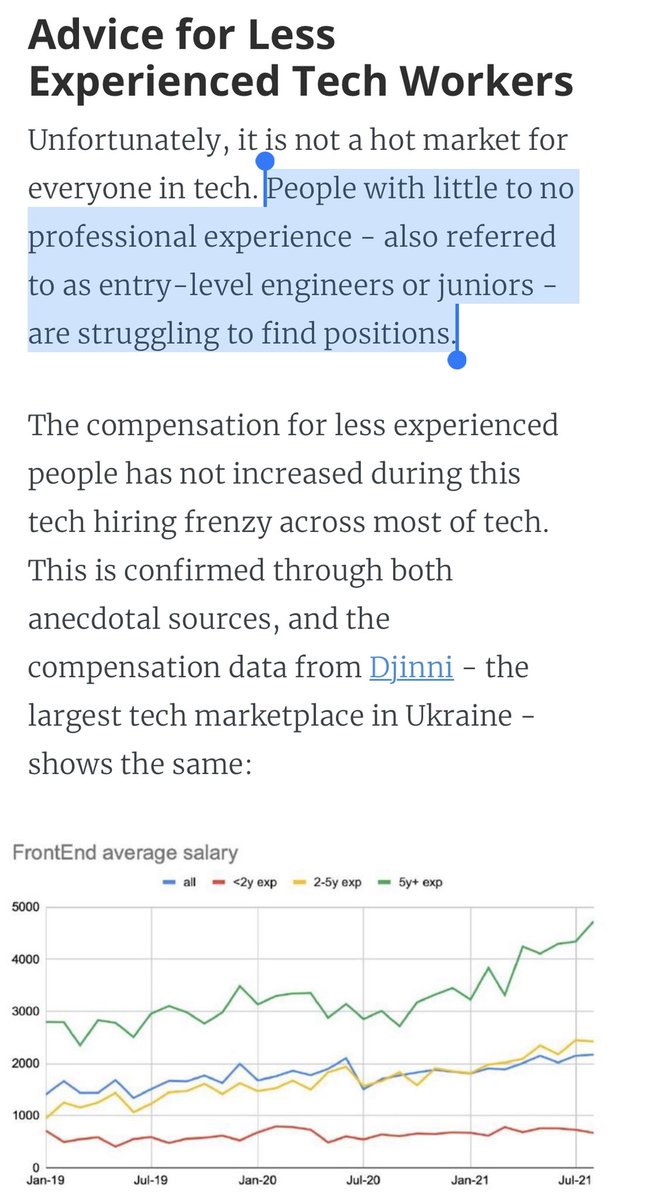
Big tech also starting to feel the pain of location-based pay.
"So I got an offer from Google. It's a 60% paycut from what I'm making right now, working remote, as a senior engineer. Never thought I'd say this to Google: but sorry, no."
- an eng in a Central EU Google location
"So I got an offer from Google. It's a 60% paycut from what I'm making right now, working remote, as a senior engineer. Never thought I'd say this to Google: but sorry, no."
- an eng in a Central EU Google location
Big tech opening offices in smaller cities is based on the assumption that their brand can pull people in for cheaper. They also buy salary data that is outdated, as are their bands.
The Google-caliber engineers living in these locations already work for US companies: remote.
The Google-caliber engineers living in these locations already work for US companies: remote.
A lot of this depends on the local leader for Big Tech offices.
If they hire someone who is not familiar with the market, this is what happens. Google will have to either adjust their local bands at this location by *a lot*. Or... keep hiring in London / Zurich.
If they hire someone who is not familiar with the market, this is what happens. Google will have to either adjust their local bands at this location by *a lot*. Or... keep hiring in London / Zurich.
By the way, as Facebook will open 7 new EU locations, hiring 10,000 engineers the next 5 years, this will happen to them as well.
Solid sr engineers working remotely won't accept local, lower FB offers... unless FB follows a different strategy to this.
cnbc.com/2021/10/17/fac…
Solid sr engineers working remotely won't accept local, lower FB offers... unless FB follows a different strategy to this.
cnbc.com/2021/10/17/fac…
And the reality of big tech hiring locally:
“The brand attracts tons of prev passive candidates. Many are underpaid on the local market already. A base offer is a 2x bump for them. We’re filling positions ahead of schedule. Yes we don’t compete w remote.” - a local recruiter
“The brand attracts tons of prev passive candidates. Many are underpaid on the local market already. A base offer is a 2x bump for them. We’re filling positions ahead of schedule. Yes we don’t compete w remote.” - a local recruiter
It’s another reminder on what works for Google or Facebook or any big tech… don’t copy blindly if you’re not them.
Not their hiring process, not their (local) compensation strategy.
And yes, startups can compete and win on talent vs even Google, locally. Just choose your game.
Not their hiring process, not their (local) compensation strategy.
And yes, startups can compete and win on talent vs even Google, locally. Just choose your game.
• • •
Missing some Tweet in this thread? You can try to
force a refresh








